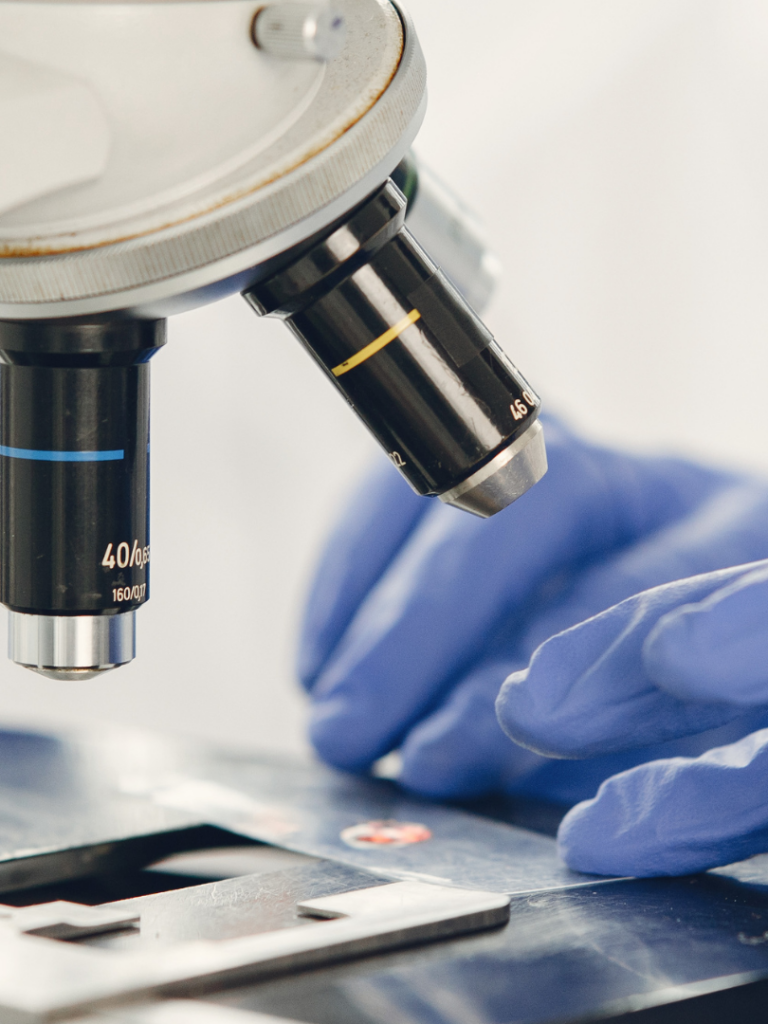Alison R. has worked as a Surgical Pathology Assistant at Health Sciences Centre for the past four years.
She spends her full 10-hour workday dissecting and examining (or ‘grossing’) tissues that have been removed during surgery, from specimens as small as gallbladders or appendixes, to as large as a double mastectomy for breast cancer. The samples are sent to the histology laboratory to be placed onto microscope slide before a Pathologist reviews them and makes a diagnosis.
“Our job is to look for signs of disease or evaluate the extent of a disease,” says Alison. “We play an important behind-the-scenes role in getting a diagnosis for patients who have had their diseased organs surgically removed.”
Once or twice a week, Alison’s work shifts to ‘on the run’, which is essentially triage, but for pathology specimens. She handles fresh tissues sent straight from the operating room and makes decisions on how to prioritize, prepare, and preserve each specimen. Sometimes, the tissues are sent to other labs for special studies, such as cytometry or cytogenetics, for specimens from patients with cancer.
The Pathway to Pathology
Alison’s fascination with human biology led to a love of lab work, guiding her to a career in pathology.
“I was always keenly interested in learning about how the human body works since I was a kid. It intrigued me to find out about how our lungs breathe, how our food gets turned into energy, and how those systems can go wrong to make us sick.”
She received her Bachelor of Science in Honors Biology and Certificate in Ethics from the University of Western Ontario, before moving to Winnipeg to get her Master of Science at the University of Manitoba’s Pathologist’s Assistant program.
“Pathology felt like the perfect blend of both healthcare and laboratory work.”
No two patients are the same
As medical science advances and cancer treatments become more effective, Pathology Assistants face niche challenges in their role – specimens are becoming increasingly complex and time-consuming.
For example, it takes less than an hour to gross a breast cancer specimen when there’s a large tumor. As more patients receive therapies to shrink their tumors before surgery, a straightforward case turns into 2+ hours of searching for a needle in a haystack. Alison says staffing levels haven’t kept up to address the increased time it takes to gross smaller specimens, pointing to a bigger-picture concern facing Manitoba’s health-care system.
“Recruitment and retention are real issues. There are only four MSc programs for PAs in Canada, and graduates can basically choose where they want to work. When other provinces offer better pay and Monday-to-Friday schedules, Manitoba is hardly a desirable location to work in.”



